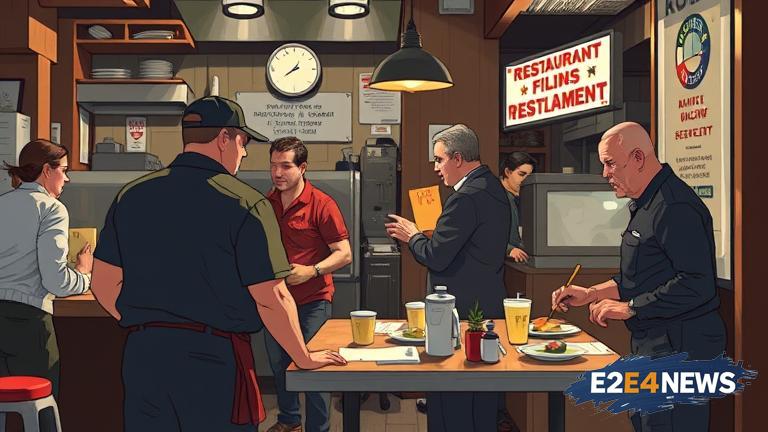A recent incident has brought attention to the challenges faced by workers in the service industry, particularly in regards to unionization. A group of restaurant workers in New York City filed for union representation, seeking better working conditions, fair wages, and improved benefits. However, their efforts were met with swift retaliation from management, as they were terminated just days after submitting their petition. The workers, who were employed at a popular restaurant in the city, had been organizing in secret for months, gathering support from colleagues and drafting a list of demands. Despite their efforts to address their concerns through internal channels, they felt that unionization was the only way to bring about meaningful change. The decision to file for union representation was not taken lightly, as the workers were aware of the potential risks and consequences. Nevertheless, they felt that it was necessary to take a stand and fight for their rights. The National Labor Relations Act (NLRA) protects workers’ right to form and join unions, but it does not always prevent employers from retaliating against workers who engage in union activity. In this case, the workers were fired allegedly for ‘performance-related issues,’ but many suspect that the true reason was their involvement in the unionization effort. The incident has sparked outrage among labor advocates and community leaders, who argue that the workers’ rights were violated. The case is currently being investigated by the National Labor Relations Board (NLRB), which will determine whether the workers were fired unfairly. If the NLRB finds in favor of the workers, they may be entitled to reinstatement and back pay. The incident highlights the challenges faced by workers in the service industry, who often lack access to basic benefits and protections. The restaurant industry is particularly notorious for its low wages, long hours, and lack of job security. Workers in this sector are often forced to rely on multiple jobs just to make ends meet, and they may be hesitant to speak out against unfair labor practices due to fear of retaliation. The unionization effort was seen as a way to address these issues and create a more equitable work environment. The workers involved in the effort were motivated by a desire to improve their working conditions and provide a better life for themselves and their families. They were also driven by a sense of solidarity and a commitment to fighting for the rights of all workers. The incident has sparked a wider debate about labor rights and the need for greater protections for workers in the service industry. Many argue that the current system is stacked against workers, who lack the power and resources to negotiate fair contracts and working conditions. Others argue that unionization is the key to creating a more just and equitable society, where workers are valued and respected. The case is likely to have significant implications for labor relations in the restaurant industry and beyond. It highlights the need for greater awareness and education about labor rights, as well as the importance of supporting workers who are fighting for their rights. The incident has also sparked a conversation about the role of unions in the modern economy and the need for greater protections for workers in the gig economy. As the investigation into the incident continues, many are watching with bated breath to see how the case will unfold. The outcome will have significant implications for workers’ rights and the future of labor relations in the United States.
